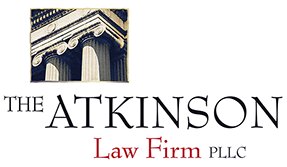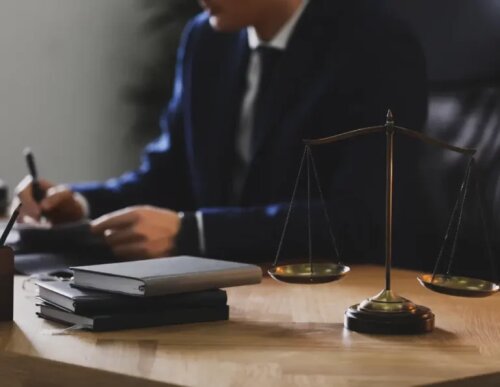Best Sexual Abuse Lawyers in North Carolina
Share your needs with us, get contacted by law firms.
Free. Takes 2 min.
Or refine your search by selecting a city:
List of the best lawyers in North Carolina, United States
About Sexual Abuse Law in North Carolina, United States
Sexual abuse is a serious crime in North Carolina, encompassing a range of illegal sexual acts committed without consent or against individuals who cannot legally give consent. This includes actions such as sexual assault, rape, child sexual abuse, exploitation, and unwanted sexual advances. North Carolina law recognizes that sexual abuse can occur in various settings, including homes, schools, workplaces, and public places. The state is committed to protecting survivors, prosecuting offenders, and providing resources to those affected.
Why You May Need a Lawyer
A lawyer's guidance is often crucial in sexual abuse cases in North Carolina due to the complexity and sensitivity of these cases. You may need legal assistance if:
- You are a survivor seeking justice through the criminal or civil courts.
- You are falsely accused and need to defend yourself against allegations.
- You want help obtaining protective orders, such as a restraining order.
- You require representation when interacting with law enforcement or prosecutors.
- You wish to understand your rights and legal options under state law.
- You are navigating claims against institutions, such as schools or churches, that may be liable for failing to prevent abuse.
- You need support in seeking compensation for damages and medical needs.
An experienced attorney can help you gather evidence, meet important deadlines, and ensure your case is handled with sensitivity and professionalism.
Local Laws Overview
North Carolina classifies sexual abuse under a variety of statutes, including sexual assault and child abuse laws. The most relevant aspects include:
- Statutory Rape: Sexual activity with minors is prohibited, with strict laws regarding the legal age of consent, which is 16 years old in North Carolina.
- First and Second Degree Sexual Offenses: North Carolina law distinguishes between degrees based on factors such as the use of force, age of the victim, and presence of aggravating circumstances.
- Reporting Requirements: Certain professionals, including teachers and healthcare providers, are mandated to report suspected abuse of minors.
- Protective Orders: Victims of sexual abuse can seek civil protective orders for protection from further contact or harm.
- Criminal Penalties: Sexual abuse crimes are generally prosecuted as felonies, with severe sentencing guidelines that may include long-term incarceration, fines, and registration as a sex offender.
- Civil Lawsuits: Survivors may file civil suits for monetary damages even if no criminal conviction occurs.
- Statute of Limitations: North Carolina has specific timelines for prosecuting sexual abuse crimes, though these rules can vary depending on the age of the victim and other factors.
Frequently Asked Questions
What is considered sexual abuse under North Carolina law?
Sexual abuse includes any unwanted or forced sexual contact, sexual assault, statutory rape, child molestation, and sexual exploitation. It also covers situations where the victim cannot legally consent, such as due to age or incapacity.
What should I do if I or someone I know has experienced sexual abuse?
If you are in immediate danger, call 911. Seek medical attention and consider preserving evidence. Report the incident to law enforcement, and reach out to a lawyer as soon as possible for legal guidance.
Is there a time limit for reporting sexual abuse?
North Carolina's statutes of limitations vary by the type of sexual abuse and whether the case is criminal or civil. Some cases, especially those involving children, may have exceptions or extended periods in which charges can be filed. Consult a lawyer promptly to understand your options.
Can I file a civil suit even if there was no criminal conviction?
Yes, survivors can file a civil lawsuit for damages, such as medical costs and emotional distress, even if the accused was not convicted in criminal court.
Is sexual abuse always a felony in North Carolina?
Most forms of sexual abuse, particularly those involving force, a minor, or non-consensual acts, are charged as felonies and carry severe penalties.
Do I need a lawyer to report sexual abuse?
No, you are not required to have a lawyer to report sexual abuse, but a lawyer can provide support and help you navigate the criminal or civil process.
Will my identity remain confidential if I report sexual abuse?
Law enforcement and the courts take steps to protect the privacy of sexual abuse survivors, but some information may become public in legal proceedings. An attorney can advise you on confidentiality and protective measures.
Can minors testify in sexual abuse cases?
Yes, minors can testify in sexual abuse cases in North Carolina, with special care taken to protect their well-being during legal proceedings.
Are there resources to help me pay for medical or counseling costs?
Yes, programs such as the North Carolina Crime Victims Compensation Program can help cover medical and counseling costs related to sexual abuse. Victims may also seek restitution through the courts.
Can sexual abuse happen in a marriage?
Yes, North Carolina law recognizes that sexual abuse can occur within a marriage and that spouses have the right to refuse unwanted sexual contact. Marital status does not exempt an abuser from prosecution.
Additional Resources
- North Carolina Coalition Against Sexual Assault (NCCASA) - provides support and advocacy for survivors.
- North Carolina Victim Assistance Network (NCVAN) - offers resources, support, and legal information for victims.
- North Carolina Department of Public Safety - manages victim compensation programs.
- Local law enforcement agencies and district attorneys - for reporting and prosecuting sexual abuse.
- Legal Aid of North Carolina - offers free or low-cost legal services to eligible individuals.
- Rape Crisis Centers - available throughout North Carolina for support and counseling.
- Child Protective Services - for cases involving minors, reports, and protection services.
Next Steps
If you or someone you know needs legal assistance related to sexual abuse in North Carolina:
- Ensure immediate safety by contacting law enforcement if you are in danger.
- Seek medical attention and consider preserving any physical evidence if an assault has just occurred.
- Document details of the abuse, including dates, locations, and any information about the abuser.
- Contact a qualified attorney who is experienced in handling sexual abuse cases in North Carolina. They can explain your rights and guide you through reporting, protective orders, and any legal action needed.
- Reach out to support organizations for counseling and support services.
- Follow through with legal advice promptly to meet any applicable deadlines for criminal or civil action.
Taking these steps can help you safeguard your rights and ensure the best possible outcome in a challenging situation.
Lawzana helps you find the best lawyers and law firms in North Carolina through a curated and pre-screened list of qualified legal professionals. Our platform offers rankings and detailed profiles of attorneys and law firms, allowing you to compare based on practice areas, including Sexual Abuse, experience, and client feedback.
Each profile includes a description of the firm's areas of practice, client reviews, team members and partners, year of establishment, spoken languages, office locations, contact information, social media presence, and any published articles or resources. Most firms on our platform speak English and are experienced in both local and international legal matters.
Get a quote from top-rated law firms in North Carolina, United States — quickly, securely, and without unnecessary hassle.
Disclaimer:
The information provided on this page is for general informational purposes only and does not constitute legal advice. While we strive to ensure the accuracy and relevance of the content, legal information may change over time, and interpretations of the law can vary. You should always consult with a qualified legal professional for advice specific to your situation.
We disclaim all liability for actions taken or not taken based on the content of this page. If you believe any information is incorrect or outdated, please contact us, and we will review and update it where appropriate.
Browse sexual abuse law firms by city in North Carolina
Refine your search by selecting a city.
















